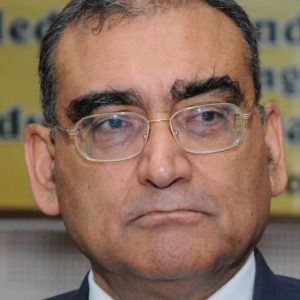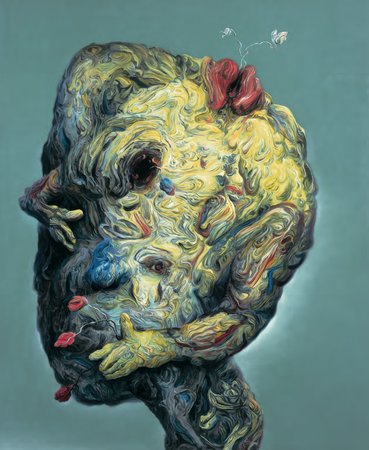

TWO predominant features will define the 21st century:
(1) The struggles of the peoples of the underdeveloped countries to make their countries developed ones.
(2) The conflicts between alliances of developed countries.
We may consider each of these separately, and then the impact they have on each other.
(1) The 21st century will witness historical struggles by people living in underdeveloped countries to transform their countries into highly developed ones so that their peoples may enjoy decent lives and a high standard of living.
Before the Industrial Revolution, which started in England around the beginning of the 18th Century and then spread to France, Germany, and many other parts of the world, there were feudal agricultural societies in most parts of the world.
 In feudal societies, the methods and tools of economic production were so backward and primitive that very little wealth could be generated by them. In much of Asia, the bullock or buffalo, and in Europe, the horse, was used for tilling the land (there were no tractors in those days).
In feudal societies, the methods and tools of economic production were so backward and primitive that very little wealth could be generated by them. In much of Asia, the bullock or buffalo, and in Europe, the horse, was used for tilling the land (there were no tractors in those days).
As a result, the feudal method of production generated so little wealth that only a handful of people, such as kings and aristocrats, became rich, while the vast majority, mostly poor peasants, lived in abject poverty and ignorance.
(The above statement must, however, be qualified with a caveat that at the later stage of the feudal era, e.g., during the Mughal and Chinese Empires, handicraft industry had grown enormously in many parts so that a considerable number of people, mainly artisans, had risen above abject poverty).
This situation has drastically changed after the Industrial Revolution. Now a unique situation has developed in world history, and that is that now no one in the world needs to be poor.
This is because modern industry is so powerful and so big that now enough wealth can be created to give everyone in the world a decent life. If society is organized on scientific lines, everyone can get jobs, healthcare, education, housing, etc., and no one needs to be poor.
The Industrial Revolution has created a unique situation in world history. People worldwide demand decent lives, as now, thanks to the Industrial Revolution, poverty, unemployment, hunger, homelessness, and lack of proper healthcare or education should be unnecessary.
However, the truth is that the overwhelming majority of the people of the world, particularly in underdeveloped countries, are still poor, many extremely poor, and their numbers are increasing.
 Why is this so? After all, almost 300 years have elapsed since the beginning of the Industrial Revolution in the first half of the 18th century. By now, poverty, unemployment, hunger, etc., should have been abolished everywhere in the world. Why has that not happened?
Why is this so? After all, almost 300 years have elapsed since the beginning of the Industrial Revolution in the first half of the 18th century. By now, poverty, unemployment, hunger, etc., should have been abolished everywhere in the world. Why has that not happened?
After the Industrial Revolution, a few countries, like those in Western Europe, rapidly industrialized and became prosperous. However, they prevented other countries from doing the same, fearing economic competition.
The globe is now divided into two worlds: the developed world, consisting of North America, Europe, Japan, Australia, and China (which has risen through revolution), and the underdeveloped countries in Asia (except China and Japan), Africa, and Latin America.
The developed countries now have a secret, unwritten rule not to allow underdeveloped countries to become developed, as that would adversely affect them. To understand this, one must go into economics, for, as is often said, politics is concentrated economics.
 The cost of labor is a big chunk of the total cost of production, and so if labor is cheap, the cost of production is less, and then one can sell his goods at a cheaper price. There is competition in the market, and one businessman eliminates another not by guns or bombs but by underselling him, i.e., selling the same high-quality goods at a cheaper price.
The cost of labor is a big chunk of the total cost of production, and so if labor is cheap, the cost of production is less, and then one can sell his goods at a cheaper price. There is competition in the market, and one businessman eliminates another not by guns or bombs but by underselling him, i.e., selling the same high-quality goods at a cheaper price.
Thus, China, which built up massive industry after its Revolution of 1949, captured much of the markets in the world because it has much cheaper labor than in Western countries. Western supermarkets are packed with Chinese goods because they often sell at half the price at which Western manufacturers can sell them (because of the expensive Western labor).
If underdeveloped countries like India set up massive industry, with their cheap labor, they will undersell the products of Western industries, which will then collapse, throwing millions out of employment.

Will the developed countries easily permit this? Will they allow their industries to collapse, resulting in millions losing their jobs? No, they will vehemently oppose it.
And how do they oppose it? They oppose it by making people in underdeveloped countries, e.g., in India, fight each other on the basis of religion, race, language, caste, etc., instead of waging a united people’s struggle for emancipation from their socio-economic plight.
This they do through the local politicians, of all parties, who are all objectively their loyal agents, e.g., Narendra Modi, whose politics thrives on religious polarization and inciting hatred against religious minorities (like Hitler’s hatred of Jews).
I have explained this in my interview by Moeed Pirzada, a Pakistani journalist.
Thus there is a direct conflict between the interests of the developed countries, who do not want underdeveloped countries to become developed ones, and the interests of the underdeveloped countries whose enlightened section realizes that unless their country becomes developed, it can never escape from abject poverty, massive unemployment, an appalling level of child malnutrition, lack of proper healthcare, and good education for the masses, etc.

So, people of underdeveloped countries have to launch historical united people’s struggles, under patriotic, selfless, modern-minded leaders, which will be long drawn, and in which tremendous sacrifices will have to be made, to create a political and social order under which all our people enjoy a high standard of living and lead decent lives.
(2) The other feature of the 21st century is the hostility between alliances of powerful nations e.g., the hostility between the alliance of USA and European countries on the one hand, and the alliance of China and Russia on the other. This hostility is unlikely to grow into nuclear war, as that would destroy all, but it will lead to proxy wars between them, using their local agents.
If skillfully utilized by the patriotic leaders of underdeveloped countries, this hostility between the two current alliances of powerful nations can be turned to the advantage of underdeveloped countries, as Chinese leaders did during the conflict between Western nations and Japan in the Far East. ![]()
__________
Also Read:
Dr. Manmohan Singh: A Hero Shy of His Own Greatness
‘Yahi Hai Mera Mama’ – A commentary on Lok Sabha Elections
AAP under scrutiny; Delving into poetic justice
Hai, Modi kitna bura hai! (Agreed. But…)
Relax, My dead body won’t trouble your shoulders!
Shilanyas was a mistake, but Rajiv was not aware of unlocking Babri

Disclaimer : PunjabTodayTV.com and other platforms of the Punjab Today group strive to include views and opinions from across the entire spectrum, but by no means do we agree with everything we publish. Our efforts and editorial choices consistently underscore our authors’ right to the freedom of speech. However, it should be clear to all readers that individual authors are responsible for the information, ideas or opinions in their articles, and very often, these do not reflect the views of PunjabTodayTV.com or other platforms of the group. Punjab Today does not assume any responsibility or liability for the views of authors whose work appears here.
Punjab Today believes in serious, engaging, narrative journalism at a time when mainstream media houses seem to have given up on long-form writing and news television has blurred or altogether erased the lines between news and slapstick entertainment. We at Punjab Today believe that readers such as yourself appreciate cerebral journalism, and would like you to hold us against the best international industry standards. Brickbats are welcome even more than bouquets, though an occasional pat on the back is always encouraging. Good journalism can be a lifeline in these uncertain times worldwide. You can support us in myriad ways. To begin with, by spreading word about us and forwarding this reportage. Stay engaged.
— Team PT


Copyright © Punjab Today TV : All right Reserve 2016 - 2026 |